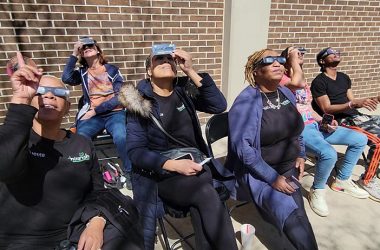As medical services become more advanced and effective, the process also can be increasingly complex.
Various health care providers, insurance companies and government regulations all play a part in a dizzying array of factors swirling around any given treatment.

The process might seem as daunting as the illness or injury, but there is help at hand. Enter the nurse navigator.
Cheryl Hicks is a nurse navigator for lung and colon cancer patients at Franciscan Health in Olympia Fields.
“We’re here to kind of guide the patient through the whole treatment course from beginning to end,” she said.
As a nurse navigator, she serves as a liaison between her patient and the various parts of the system that come into play, including the members of the patient’s care team such as oncologists, surgeons, radiologists and social workers.
“We can serve as a single point of contact for the care team and we help the patient with things like, education, information, treatment options,” Hicks said. “Sometimes we can intervene and assist in getting timely appointments. If there’s anything that’s interfering with their getting timely care, we are here to help solve that problem and remove any barriers or obstacles.”
In her specialty of cancer care, Hicks might help a patient who has just been diagnosed with colon cancer with access to information about the disease so the patient knows what she is facing.
But her job is not simply to point to information.
When Hicks first meets with a patient, she assesses where the person is emotionally, too, so she can give them access to information that fits their needs at the moment.
“We try to get an idea of where their mindset is,” Hicks said. “Are they coming to terms with their diagnosis? Some people hear the word ‘cancer’ and they get very depressed. In that case, we would refer them to a good resource.”
Patients might be referred to a mental health professional or the Cancer Support Center in Homewood, which provides a wide array of support services.
A nurse navigator also looks at the context for each patient, getting a sense for what kind of support system he has. They ask if the patient will have someone in the home to help them with their daily needs, including transportation to treatments and other appointments.
In addition to knowing the system and understanding treatment, Hicks said a strong sense of empathy is an important characteristic for nurse navigators.
“I’m probably at the extreme end of empathetic because I’m a cancer survivor myself,” Hicks said.
Although her cancer has been in remission long enough to be considered cured, she still remembers how she felt when she got the diagnosis and went through treatment.
“I’ve been sitting exactly where they are and I know what it feels like to hear those words. ‘I’m sorry, it’s cancer.’ I know how important it is to have a compassionate, supportive care team,” she said. “The cancer journey is not an easy one and it really helps when you have somebody that you know is on your side that really gets how you feel.”
She said there are two main messages she wants the community to know.
The first is that anyone who receives a cancer diagnosis should know a nurse navigator will be glad to be by their side.
“There is assistance out there. No one fights alone,” she said.
The second is that early detection is often key to survival, and Franciscan offers programs to make screening tests easy and accessible.
For example, lung cancer screening is available for qualified patients for $49 and does not require a doctor’s referral.
Visit bit.ly/Franciscanscreening or call 833-238-0688 for more information.




